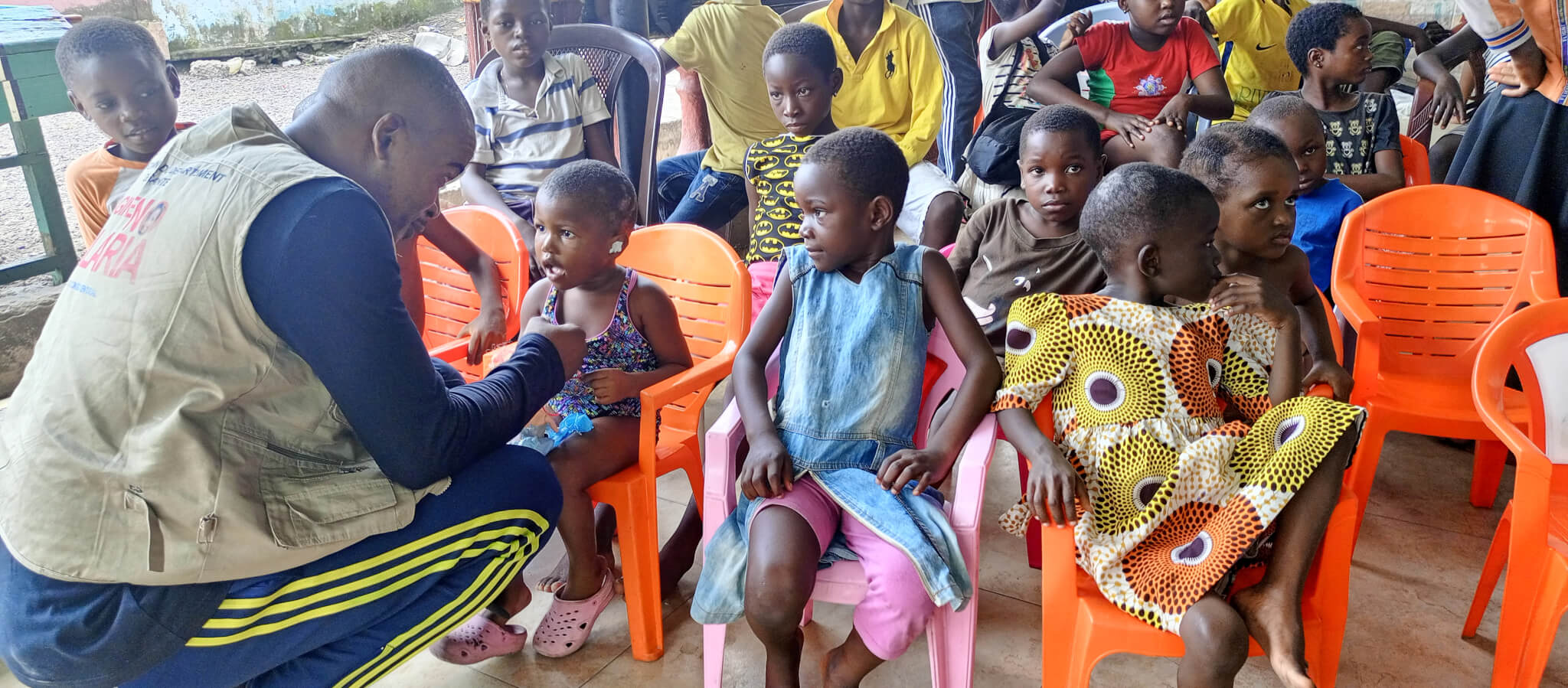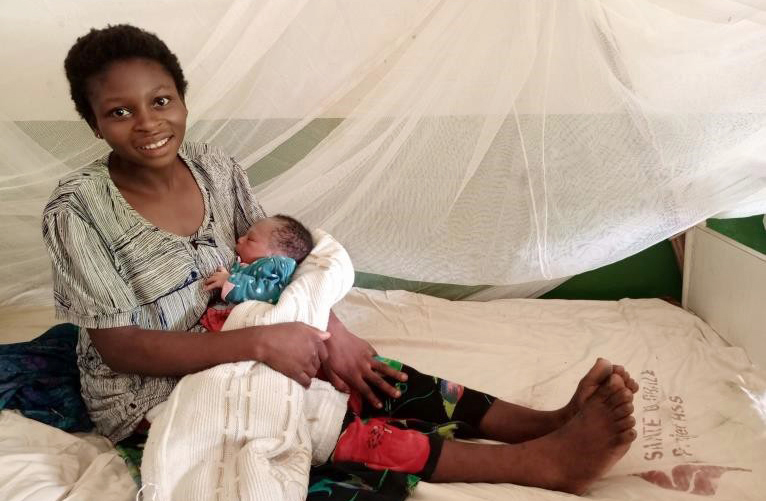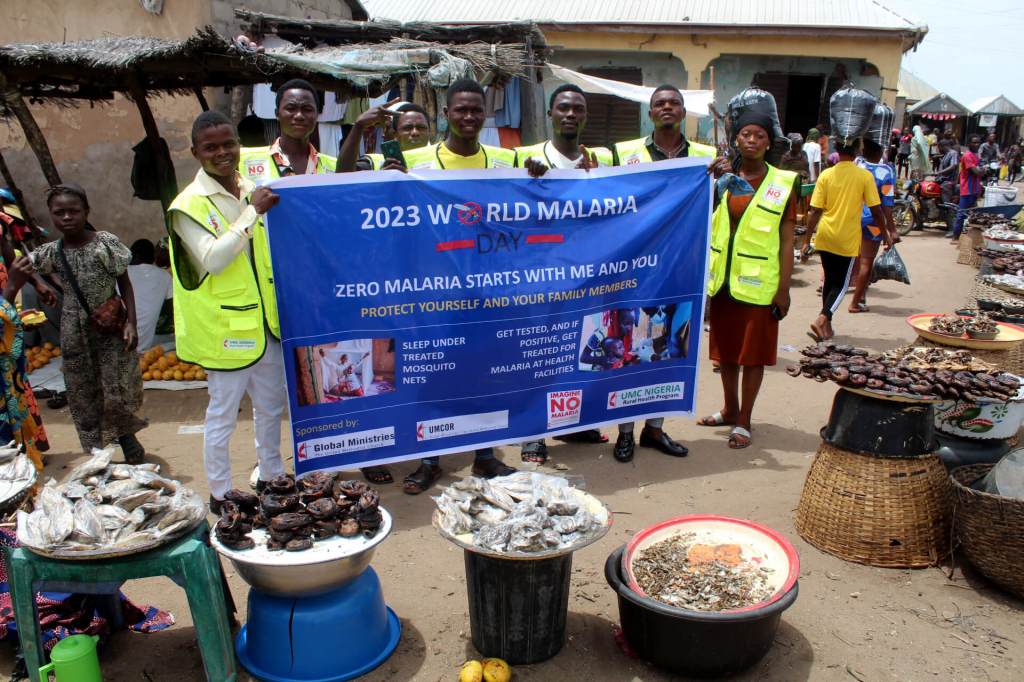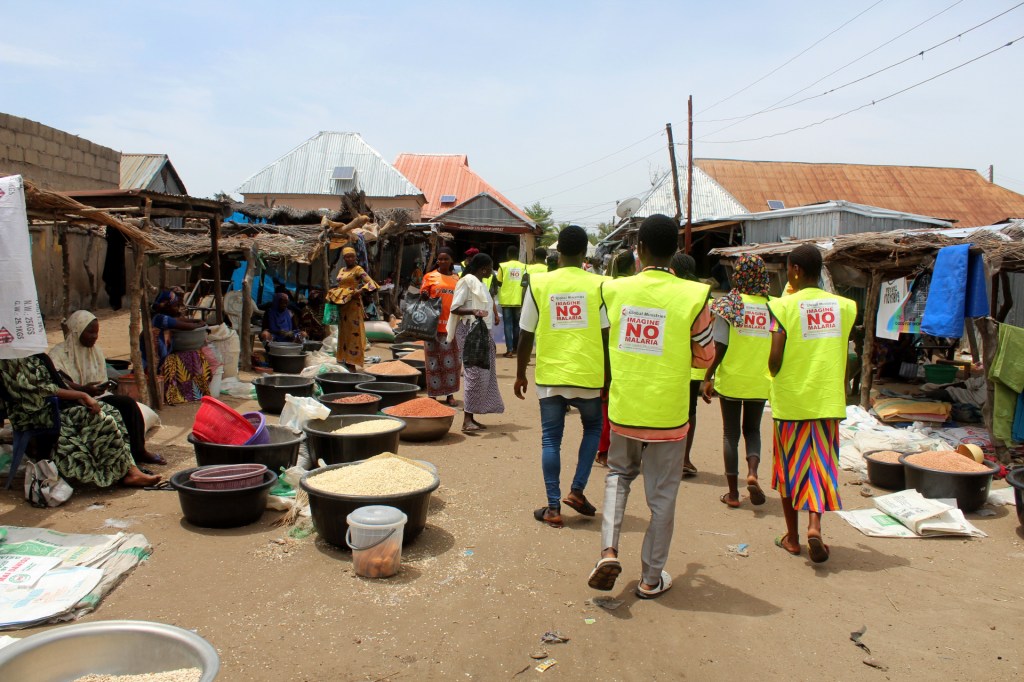Reducing malaria community by community

ATLANTA – Every year on April 25, the World Health Organization (WHO) sponsors World Malaria Day to commemorate the ways that people around the world continue to battle this deadly but preventable and treatable disease. Unfortunately, the message about causes and remedies has not yet reached all the vulnerable communities that are most susceptible to it.
In some areas of the Democratic Republic of the Congo, women remain hesitant about seeking prenatal and obstetric care. They try, instead, to follow their family and tribal traditions, which have served their communities for hundreds of years. But some diseases, such as malaria, HIV and AIDS, require stronger antidotes than traditional practices can offer.
Mamu was one who tried to stay with traditional treatments. But then, three years ago, she was pregnant with twin girls, and when she did not feel well, she went to traditional healers for a remedy to bring down the fever, which was caused by malaria. But her babies were born prematurely; neither survived. So last year, when she became pregnant again, her husband convinced her to ask for obstetric services at the Nganza United Methodist Health Center. This time she attended regular prenatal appointments and followed the advice of the doctor and nursing staff.

“I have just given birth to my second son here without difficulty,” Mamu affirmed, as the staff asked her how she was doing. “We are in good health, I don’t have a fever, and my child too, is doing very well. I gave birth in very good conditions at the Nganza Health Center. I invite all pregnant women in the area to come and follow the prenatal care program.”
Part of prenatal care at the Nganza center – and for most United Methodist facilities partnering with Global Ministries – is a routine course of malaria prophylactics, much like what travelers take to avoid contracting it. Women also receive a long-lasting insecticide-treated bed net upon arrival at the center, and the combination generally keeps them free of malaria throughout pregnancy. This greatly improves the likelihood of delivering a healthy baby.
But it is best if families do not have to experience terrible personal losses for women to seek health care from professional centers. So, every year on World Malaria Day, and many more days during the year, volunteers recruited and trained in United Methodist health centers take their message to the streets.
Community engagement programs
Most UMC health ministries have developed systems that include church and community volunteers, youth teams and sometimes municipal groups like schools or civic societies to learn about malaria prevention and treatment. The groups then canvas a community with information about best practices concerning health. In the case of malaria, women like Mamu and their families are encouraged to come to the health facilities as soon as they think they are pregnant to begin prenatal care. At other times, these groups may organize community clean-up days, sharing information about recognizing and eliminating environmental conditions that encourage mosquitos to breed and multiply.
UMC health boards in Angola, Burundi, the Democratic Republic of the Congo, Sierra Leone, Liberia and Nigeria all train dedicated volunteers who disseminate needed information among their own communities. In Nigeria, groups of young people first approach village leaders, whether they are traditional tribal leaders, Christians or Muslims, it doesn’t matter. Once they have discussed the plan and received approval, they enter a community with local support and encouragement.

Another way in which malaria programming is integrated into UMC health operations in Africa is through a robust practice of strengthening all the health systems that help communities to thrive. In addition to medicines, testing kits and other malaria supplies, activities such as improving or rebuilding facilities, furnishing new units, ensuring a healthy and accessible water supply and a well-trained staff are all things Global Ministries considers and supports with partner health boards.
Vaccinations now a reality
For some years research has progressed for a vaccine solution to the parasite that causes malaria. Just recently, the World Health Organization (WHO) approved two malaria vaccines as safe and effective. On World Malaria Day, health officials in Liberia and Sierra Leone will launch malaria vaccine campaigns and make the RTS,S vaccine available. UMC health facilities will stock vaccines and advocate to make them part of the routine cycle of vaccinations for every child.
By June 2024, the DRC and Burundi should have vaccines available and Mozambique and Nigeria will follow. These vaccines, if accepted and administered, should greatly reduce malaria and the effects of severe malaria, including death, in populations repeatedly affected by it. Global Ministries will work with conference and episcopal area health boards to support vaccination programs, working with local governments and communities to encourage vaccination of children ages 5 and under.

Efforts to reduce and even eliminate malaria continue through Global Ministries’ health work with African health boards and beyond. Since the INM campaign was launched in 2008, the program has reached thousands of people with malaria prevention and control strategies. The grassroots efforts to eliminate malaria in local communities goes on, absorbed by other Global Health programming and coordinated by health professionals in their own communities. With introduction of the vaccines, a new era in malaria prevention is dawning.
Christie R. House is a consultant writer and editor with Global Ministries and UMCOR.
Global Health
Through United Methodist conferences and health boards, Global Ministries works to strengthen whole networks of health responses, from revitalization of facilities and staff training to building better water sources, developing sanitation facilities and promoting nutrition. Global Health concentrates on eradicating preventable diseases, such as malaria, HIV and AIDS, and COVID-19, and supporting the most vulnerable populations, including mothers, newborns and children.

